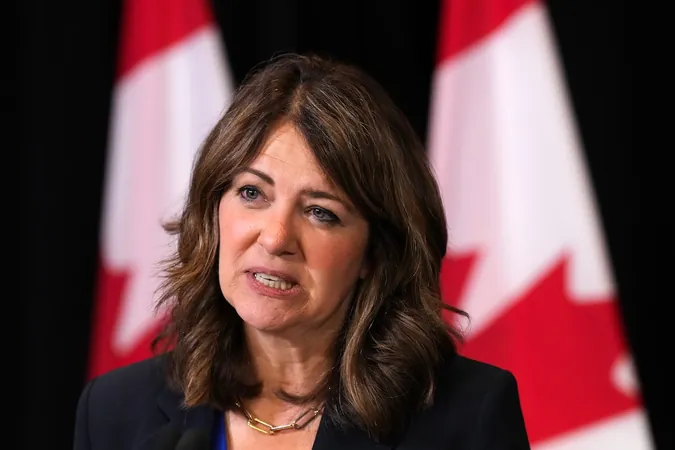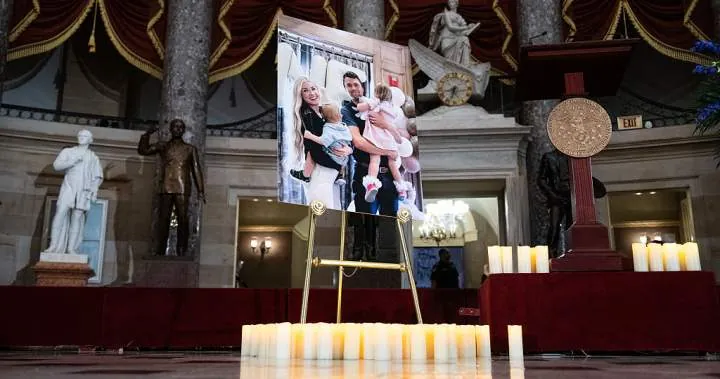
Alberta's Transgender Laws: Controversial Notwithstanding Clause Sparks Outrage
2025-09-20
Author: Amelia
Alberta's Bold Move Under Fire
In a striking and controversial decision, Alberta has announced plans to invoke the notwithstanding clause of the Charter of Rights and Freedoms, a move aimed at protecting new laws concerning transgender youth from legal challenges. This decision has ignited a firestorm of criticism and reignited a heated national discussion about the government's authority to override human rights.
The Controversial Laws Explained
Last year, under the United Conservative Party's governance, Alberta enacted laws that significantly affect transgender youth under 16. These laws include barring transgender girls from participating in female-only sports, prohibiting access to gender-affirming healthcare, and mandating parental consent for name or pronoun changes in schools.
Political Backlash and Public Outcry
Naheed Nenshi, leader of the Alberta NDP, has criticized Premier Danielle Smith’s rationale for these laws, calling them a betrayal of her claim to be a champion of freedom. "She claims to be the most freedom-loving politician in Canada, yet she is systematically stripping people of their rights," Nenshi asserted. He condemned her actions as not only misguided but also cruel.
Potential Legal Implications
According to Heather Jenkins, a spokeswoman for the provincial government, they will resort to the notwithstanding clause "if deemed necessary." This declaration comes in the wake of last December's statement by Smith that she would only use it as a last resort.
Human Rights Groups Respond
Advocacy groups have rallied to oppose the controversial laws, labeling the government's move as 'state-sponsored transphobia.' Egale Canada has joined the chorus, describing it as an outright attack on the rights of all Canadians. A legal challenge is already underway, having led to a court injunction that temporarily halted the implementation of the gender-affirming care law.
Historical Context of the Notwithstanding Clause
The notwithstanding clause has seen limited use since being part of the Charter in 1982, with Alberta last employing it against same-sex marriage. Its invocation has become increasingly common in recent years, especially among conservative governments, leading to significant legal implications.
Supreme Court Scrutiny
A landmark case surrounding the use of the notwithstanding clause is currently before the Supreme Court of Canada, triggered by Quebec's enactment of Bill 21, which bans public sector employees from wearing religious symbols. While the Supreme Court deliberates, the federal government has urged limitations on the use of the notwithstanding clause, a request met with strong opposition from Alberta and its allies.
Local Resistance Takes Shape
In Alberta, families like the Elzingas are leading the charge against the government's policies. Fourteen-year-old Natalie Elzinga, along with her mother Leah, has taken a stand by publicly opposing the laws. Their appeal emphasizes solidarity and compassion for all individuals, highlighting the detrimental effects these laws could have on their community's youth.
A Call for Change and Solidarity
"It’s about protecting our neighbors and friends, people we may not even know," Leah Elzinga voiced during a recent podcast. Their determination mirrors a growing pushback against these contentious laws, as Albertans rally to ensure that rights for transgender individuals are upheld and respected.









 Brasil (PT)
Brasil (PT)
 Canada (EN)
Canada (EN)
 Chile (ES)
Chile (ES)
 Česko (CS)
Česko (CS)
 대한민국 (KO)
대한민국 (KO)
 España (ES)
España (ES)
 France (FR)
France (FR)
 Hong Kong (EN)
Hong Kong (EN)
 Italia (IT)
Italia (IT)
 日本 (JA)
日本 (JA)
 Magyarország (HU)
Magyarország (HU)
 Norge (NO)
Norge (NO)
 Polska (PL)
Polska (PL)
 Schweiz (DE)
Schweiz (DE)
 Singapore (EN)
Singapore (EN)
 Sverige (SV)
Sverige (SV)
 Suomi (FI)
Suomi (FI)
 Türkiye (TR)
Türkiye (TR)
 الإمارات العربية المتحدة (AR)
الإمارات العربية المتحدة (AR)